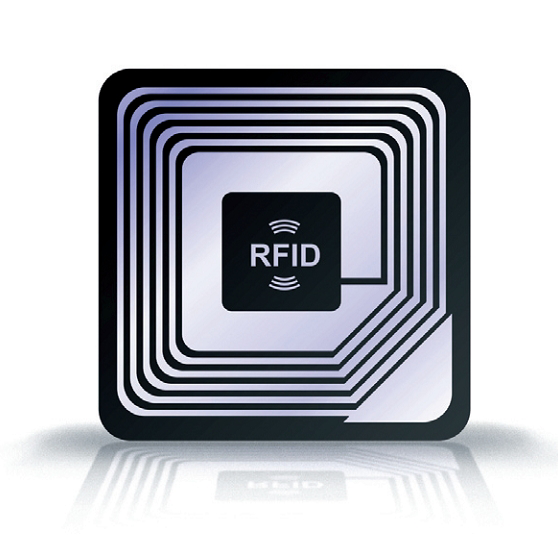Retail companies including Cincinnati-based Macy's Inc. are accelerating adoption of radio-frequency identification technology that allows items to be identified and tracked wirelessly via radio waves.
Retailers are primarily using radio-frequency identification to manage their inventories with greater accuracy, but data derived through item-level tracking is expected to open new opportunities for improving the customer experience, as well, industry experts said.
“From a return-on-investment perspective for the retailer, the benefits are massive,” said Bill Toney, head of global RFID market development for Avery Dennison Corp., a global labelling and packaging materials manufacturer with an office in Miamisburg.
The Dayton region is a center for RFID technology, according to Bob Kauffman, a distinguished research chemist at the University of Dayton Research Institute. “You have some of the largest companies involved in RFID tags in Dayton area,” including Avery Dennison and Alien Technology, he said.
Kauffman developed an RFID tag for the Federal Aviation Administration that he also licensed to Moraine-based American Thermal Instruments to monitor the temperatures of food and medical items during shipment.
An RFID tag is a “smart bar code” that contains an integrated circuit that can be programmed with information about a given item, Kauffman said. That information is obtained via radio waves with an RFID reader, which is used to identify and track the item.
RFID tags can be scanned from far greater distances than traditional bar code scanners, which require close proximity and a direct line of sight to the bar code.
Up to 15,000 pieces of merchandise to be scanned per hour using RFID, compared to 300 items per hour using a bar code scanner, said Rick Bauer, Avery Dennison's vice president of global inventory accuracy and loss prevention solutions.
“With RFID, Macy's and Bloomingdale's store associates can count inventory significantly faster. This enables multiple counts throughout the year compared with the traditional practice of taking a physical inventory once a year,” said Jim Sluzewski, Macy's senior vice president of corporate communications and external affairs.
Inventory accuracy can be maintained at 97 percent or better using RFID, Sluzewski said.
“Frequent counts ensures the correct placement of items in the right range of sizes, colors and styles on the selling floor,” he said.
Macy's officials said RFID technology is essential to the company's “omnichannel” initiative. The strategy involves integrating Macy's stores, the Internet and mobile devices to allow store associates at any location to sell merchandise that may be out of stock locally, by selecting items from another store or an online fulfillment center for shipment to the customer's door.
“RFID is a tool to better serve customers and drive sales by ensuring we have the right product in the right place at the right time for our in-store, online and mobile shoppers,” Sluzewski said.
############
Advice from the Pros:
Tracking Technologies Can Improve Inventory Management, but….
Whether RFID is better than bar coding depends on the needs of your business and the type of inventory you store or distribute. Bar coding generally is less expensive to implement than RFID, and it provides adequate, cost-effective inventory identification and tracking capabilities, especially for smaller manufacturers and distributors that warehouse less expensive inventory items. Bar coding also makes sense if you carry liquid or metal inventory that might interfere with certain radio frequencies. In some cases, combining the use of RFID and bar coding technologies also may provide a cost-effective solution.
— Joel Herman, CPA, Ostrow, Reisen, Berk & Abrams, Ltd.
############
Avery Dennison, headquartered in Glendale, Calif., has produced more than 3 billion RFID tags and labels for the retail and apparel industry, company officials said.
The company's facility at 170 Monarch Lane in Miamisburg includes an RFID Innovation Center to show customers how the technology is utilized from the garment factory to the retail floor. The facility also has an RFID laboratory for testing and validating the technology.
“The reason Miamisburg has been involved in this is because we have been leading the forefront of this technology since the late 1990s,” Bauer said. The company employs 513 workers locally, about 15 of whom are involved in RFID, he said.
Alien Technology, headquartered in Morgan Hill, Calif., has an RFID Solution Center at 3001 West Tech Road in Miamisburg. The company provides RFID tags, readers and professional services for retail and other industries. Alien Technology officials declined comment for this article.
The global RFID market is expected to reach $9.2 billion in 2014, up from $7.88 billion last year, according to market research firm IDTechEx. This includes spending for tags, readers, and software and services for RFID cards, labels, fobs and other related items. IDTechEx forecast that to rise to $30.24 billion in 2024.
In retail, RFID is seeing rapid growth for apparel tagging. That application alone required 2.25 billion RFID labels in 2013, according to IDTechEx.
However, RFID technology has some limitations for retail applications, experts said.
Sluzewski said RFID doesn't readily lend itself to tracking fashion goods that tend to change each season and are not automatically replenished. “In these categories, an automated inventory count has not justified the resources required of an RFID process,” he said.
RFID retail tags cost about 10 cents more each than traditional bar code tags, which typically cost one or two cents. Prices for RFID tags have seen a “significant decline” with rising adoption by retailers, Toney said.
In addition, radio frequency signals can't be read through metal, which makes it RFID difficult to use for tracking items such as kitchen pots and pans, or canned foods in grocery store, Kauffman said.
“There is a big push right now in the RFID industry to get RFID tags to work with metal,” he said.
——————-
Copyright 2014 – Dayton Daily News, Ohio
Thanks for reading CPA Practice Advisor!
Subscribe Already registered? Log In
Need more information? Read the FAQs
Tags: Accounting, Security




